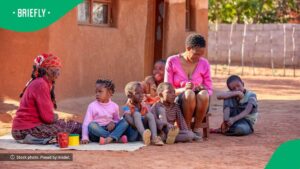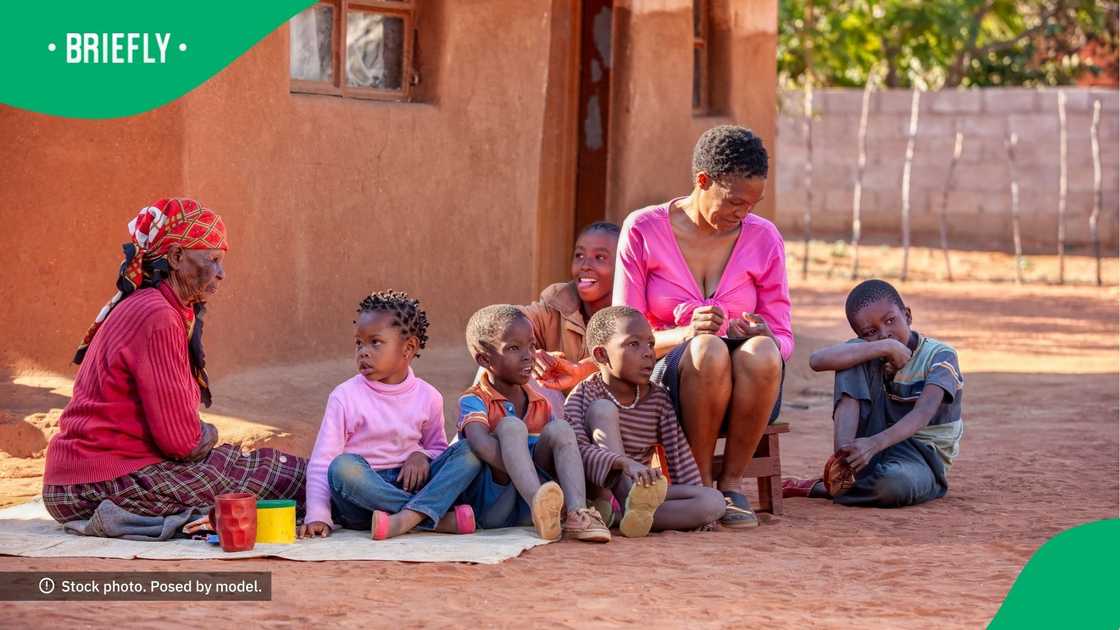A Mother’s Desperate Struggle
A 37-year-old mother of nine from the Eastern Cape, Liziwe Mgxekwa, has been battling severe poverty, forcing her to give away some of her children to relatives. She has been unable to receive social grants due to documentation issues, and her heartbreaking story has sparked widespread debate in South Africa.
Living in Harsh Conditions
Mgxekwa’s struggle was uncovered by Newz Room Afrika after concerned neighbors reached out to the media. Since 2022, she has been living in an electricity-free shack after her previous home was destroyed. Despite promises from officials to provide her with proper housing, no action has been taken.
To survive, she does domestic work for her neighbors in exchange for leftover food or small amounts of money. Her eldest son, who had to drop out of school after a car accident, is frustrated by his inability to help his family. Meanwhile, her other children often miss school due to a lack of proper uniforms and resources.
Community Support and SASSA’s Response
Mgxekwa’s neighbor, Nolitha Diliza, took it upon herself to bring attention to the situation. She described how painful it was to see the children struggling daily, sometimes going to school on empty stomachs. Diliza has been trying to help by donating clothes that her own children no longer wear.
Following media exposure, the South African Social Security Agency (SASSA) visited Mgxekwa, providing groceries and pledging financial assistance for three months while she works to obtain the necessary documentation for her children.
Social Media Reactions to the Mother’s Story
The story has sparked intense debate on social media. Some users expressed sympathy, while others criticized her for having nine children without financial stability.
One user commented:
“There is no logical reason why somebody should have nine whole kids!”
Another wrote:
“Having nine kids without any source of income should be a crime.”
Others blamed the government for failing to support impoverished citizens, while some argued that individuals should take responsibility for their life choices.
A Reflection of a Broader Issue
Mgxekwa’s story is not an isolated case but rather a reflection of the challenges many South African families face. Poverty, lack of proper housing, and difficulties in accessing social grants remain pressing issues.
While SASSA’s temporary assistance is a relief, many believe that long-term solutions are necessary to prevent similar cases. The story has reignited discussions about family planning, government responsibility, and the role of community support in addressing extreme poverty.
Final Thoughts
As South Africans continue to debate Mgxekwa’s situation, one thing remains clear—urgent action is needed to help struggling families before they reach a point of desperation. Whether through better government intervention, education, or social support, the nation must work together to create lasting solutions for those in need.

